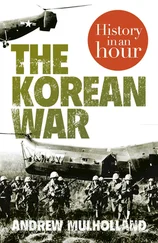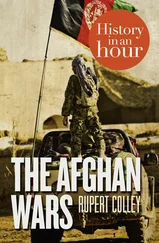Winston Churchill - The River War (History of the War in Sudan)
Здесь есть возможность читать онлайн «Winston Churchill - The River War (History of the War in Sudan)» — ознакомительный отрывок электронной книги совершенно бесплатно, а после прочтения отрывка купить полную версию. В некоторых случаях можно слушать аудио, скачать через торрент в формате fb2 и присутствует краткое содержание. Жанр: unrecognised, на английском языке. Описание произведения, (предисловие) а так же отзывы посетителей доступны на портале библиотеки ЛибКат.
- Название:The River War (History of the War in Sudan)
- Автор:
- Жанр:
- Год:неизвестен
- ISBN:нет данных
- Рейтинг книги:4 / 5. Голосов: 1
-
Избранное:Добавить в избранное
- Отзывы:
-
Ваша оценка:
- 80
- 1
- 2
- 3
- 4
- 5
The River War (History of the War in Sudan): краткое содержание, описание и аннотация
Предлагаем к чтению аннотацию, описание, краткое содержание или предисловие (зависит от того, что написал сам автор книги «The River War (History of the War in Sudan)»). Если вы не нашли необходимую информацию о книге — напишите в комментариях, мы постараемся отыскать её.
The River War is a historical book by Winston Churchill, concerning his experiences as a British Army officer, during the Mahdist War (1881–99) in the Sudan. The River War tells a story of the British imperial involvement in the Sudan, and the Mahdi War between the British forces, led by Lord Kitchener, and the Dervish forces, led by Khalifa Abdallahi ibn Muhammad, «The Mahdi», heir to the self-proclaimed Mahdi Muhammad Ahmad who had embarked on a campaign to conquer Egypt, to drive out the Ottomans.
The River War (History of the War in Sudan) — читать онлайн ознакомительный отрывок
Ниже представлен текст книги, разбитый по страницам. Система сохранения места последней прочитанной страницы, позволяет с удобством читать онлайн бесплатно книгу «The River War (History of the War in Sudan)», без необходимости каждый раз заново искать на чём Вы остановились. Поставьте закладку, и сможете в любой момент перейти на страницу, на которой закончили чтение.
Интервал:
Закладка:
When difficulties and dangers perplex all minds, it has often happened in history that many men by different lines of thought arrive at the same conclusion. No complete record has yet been published of the telegrams which passed between the Government and their agent at this juncture. The Blue-books preserve a disingenuous discretion. But it is known that from the very first Sir Evelyn Baring was bitterly opposed to General Gordon's appointment. No personal friendship existed between them, and the Administrator dreaded the return to the feverish complications of Egyptian politics of the man who had always been identified with unrest, improvisation, and disturbance. The pressure was, however, too strong for him to withstand. Nubar Pasha, the Foreign Office, the British public, everyone clamoured for the appointment. Had Baring refused to give way, it is probable that he would have been overruled. At length he yielded, and, as soon as his consent had been obtained, the government turned with delight to Gordon. On the 17th of January Lord Wolseley requested him to come to England. On the 18th he met the Cabinet. That same night he started on the long journey from which he was never to return.
Gordon embarked on his mission in high spirits, sustained by that belief in personality which too often misleads great men and beautiful women. It was, he said, the greatest honour ever conferred upon him. Everything smiled. The nation was delighted. The Ministers were intensely relieved. The most unbounded confidence was reposed in the envoy. His interview with the Khedive was 'very satisfactory.' His complete authority was proclaimed to all the notables and natives of the Soudan (Proclamation of the Khedive, January 26, 1884.) He was assured of the support of the Egyptian Government (Sir E. Baring to Major-General Gordon, January 25, 1884.) The London Foreign Office, having with becoming modesty admitted that they had not 'sufficient local knowledge,' (Earl Granville to Sir E. Baring, January 22, 1884.) accorded him 'widest discretionary power.' (Sir E. Baring to Earl Granville, February 1, 1884.) One hundred thousand pounds was placed to his credit, and he was informed that further sums would be supplied when this was exhausted. He was assured that no effort would be wanting on the part of the Cairene authorities, whether English or Egyptian, to afford him all the support and co-operation in their power (Sir E. Baring to Major-General Gordon, January 25, 1884.) 'There is no sort of difference,' wrote Sir Evelyn Baring, 'between General Gordon's views and those entertained by Nubar Pasha and myself.' (Sir E. Baring to Earl Granville, February 1,1884.) Under these propitious auguries the dismal and disastrous enterprise began.
His task, though difficult and, as it ultimately proved, impossible, was clearly defined. 'You will bear in mind,' wrote Sir Evelyn Baring, 'that the main end to be pursued is the evacuation of the Soudan.' 'The object... of your mission to the Soudan,' declared the Khedive, 'is to carry into execution the evacuation of those territories and to withdraw our troops, civil officials, and such of the inhabitants... as may wish to leave for Egypt... and after the evacuation to take the necessary steps for establishing an organised Government in the different provinces.' Nor was he himself under any misconception. He drew up a memorandum when on board the Tanjore in which he fully acquiesced in the evacuation of the Soudan. In a sentence which breathes the same spirit as Mr. Gladstone's famous expression, 'a people rightly struggling to be free,' he wrote: 'I must say that it would be an iniquity to conquer these peoples and then hand them back to the Egyptians without guarantees of future good government.' Finally, he unhesitatingly asserted: 'No one who has ever lived in the Soudan can escape the reflection "What a useless possession is this land!"' And Colonel Stewart, who accompanied him and endorsed the memorandum, added: 'And what a huge encumbrance to Egypt!' Thus far there was complete agreement between the British envoy and the Liberal Cabinet.
It is beyond the scope of these pages to describe his long ride across the desert from Korosko to Abu Hamed, his interview with the notables at Berber, or his proclamation of the abandonment of the Soudan, which some affirm to have been an important cause of his ruin. On the 22nd of February he arrived at Khartoum. He was received with rejoicing by the whole population. They recognised again their just Governor-General and their present deliverer. Those who had been about to fly for the north took fresh heart. They believed that behind the figure of the envoy stood the resources of an Empire. The Mahdi and the gathering Dervishes were perplexed and alarmed. Confusion and hesitancy disturbed their councils and delayed their movements. Gordon had come. The armies would follow. Both friends and foes were deceived. The great man was at Khartoum, but there he would remain—alone.
Whatever confidence the General had felt in the power of his personal influence had been dispelled on the journey to Khartoum. He had no more illusions. His experienced eye reviewed the whole situation. He saw himself confronted with a tremendous racial movement. The people of the Soudan had risen against foreigners. His only troops were Soudanese. He was himself a foreigner. Foremost among the leaders of the revolt were the Arab slave dealers, furious at the attempted suppression of their trade. No one, not even Sir Samuel Baker, had tried harder to suppress it than Gordon. Lastly, the whole movement had assumed a fanatical character. Islam marched against the infidel. Gordon was a Christian. His own soldiers were under the spell they were to try to destroy. To them their commander was accursed. Every influence was hostile, and in particular hostile to his person. The combined forces of race, class, and religion were against him. He bowed before their irresistible strength. On the very day of his arrival at Khartoum, while the townsfolk were cheering his name in the streets and the batteries were firing joyful salutes, while the people of England thought his mission already accomplished and the Government congratulated themselves on the wisdom of their action, General Gordon sat himself down and telegraphed a formal request to Cairo for Zubehr Pasha.
The whole story of his relations with Zubehr is extremely characteristic. Zubehr's son, Suliman, had been executed, if not by Gordon's orders, at least during his administration of the Soudan and with his complete approval. 'Thus,' he had said, 'does God make gaps in the ranks of His enemies.' He had hardly started from London on his new mission, when he telegraphed to Sir Evelyn Baring, telling him that Zubehr was a most dangerous man and requesting that he might be at once deported to Cyprus. This was, of course, quite beyond the powers or intention of the British Agent. The General arrived in Cairo like a whirlwind close behind his telegram, and was very angry to hear that Zubehr was still in Egypt. Before starting up the river he went to see Sherif Pasha. In the ex-Minister's ante-room he met the very man he had determined to avoid—Zubehr. He greeted him with effusion. They had a long talk about the Soudan, after which Gordon hurried to the Agency and informed Sir Evelyn Baring that Zubehr must accompany him to Khartoum at once. Baring was amazed. He did not himself disapprove of the plan. He had, in fact, already recommended it. But he thought the change in Gordon's attitude too sudden to be relied on. To-morrow he might change again. He begged the General to think more seriously of the matter. Gordon with his usual frankness admitted that his change of mind had been very sudden. He had been conscious, he said, of a 'mystic feeling' that Zubehr was necessary to save the situation in the Soudan.
Gordon left Cairo still considering the matter. So soon as he made his formal demand from Khartoum for the assistance of Zubehr it was evident that his belief in the old slave dealer's usefulness was a sound conviction and not a mere passing caprice. Besides, he had now become 'the man on the spot,' and as such his words carried double force. Sir Evelyn Baring determined to support the recommendation with his whole influence. Never was so good a case made out for the appointment of so bad a man. The Envoy Extraordinary asked for him; Colonel Stewart, his colleague, concurred; the British Agent strongly urged the request; the Egyptian Government were unanimous; and behind all these were ranged every single person who had the slightest acquaintance with the Soudan. nothing could exceed the vigour with which the demand was made. On the 1st of March General Gordon telegraphed: 'I tell you plainly, it is impossible to get Cairo employees out of Khartoum unless the Government helps in the way I told you. They refuse Zubehr.... but it was the only chance.' And again on the 8th: 'If you do not send Zubehr, you have no chance of getting the garrisons away.' 'I believe,' said Sir Evelyn Baring in support of these telegrams, 'that General Gordon is quite right when he says that Zubehr Pasha is the only possible man. Nubar is strongly in favour of him. Dr. Bohndorf, the African traveller, fully confirms what General Gordon says of the influence of Zubehr.' The Pasha was vile, but indispensable.
Читать дальшеИнтервал:
Закладка:
Похожие книги на «The River War (History of the War in Sudan)»
Представляем Вашему вниманию похожие книги на «The River War (History of the War in Sudan)» списком для выбора. Мы отобрали схожую по названию и смыслу литературу в надежде предоставить читателям больше вариантов отыскать новые, интересные, ещё непрочитанные произведения.
Обсуждение, отзывы о книге «The River War (History of the War in Sudan)» и просто собственные мнения читателей. Оставьте ваши комментарии, напишите, что Вы думаете о произведении, его смысле или главных героях. Укажите что конкретно понравилось, а что нет, и почему Вы так считаете.












